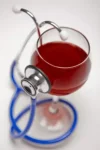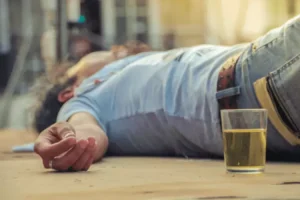
The answer came to me very simply in the first step of the Twelve Steps of A.A. “We admitted we were powerless over alcohol – that our lives had become unmanageable.” This didn’t say we had to be in jail, ten, fifty, or one hundred times. It didn’t say I had to lose one, five, or ten jobs. It didn’t say I had to lose my family. It didn’t say I had to finally live on skid row and drink bay rum, canned heat, or lemon extract. It did say I admitted I was powerless over alcohol – that my life had become unmanageable.
An example of Step 9 amends is when someone in recovery apologizes for stealing and then makes it right by returning the stolen property. Again, planning for negative outcomes when making amends and discussing these plans with a sponsor or support group can provide essential emotional preparation. It’s also important to have a plan and be prepared for different possible reactions, with guidance from a sponsor and support group of some kind.
I jumped out of my car and greeted him. Funny thing, but it was his first meeting of Alcoholics Anonymous also. In we walked – into a world that has turned everything in my life inside out. The specifics are pretty much the same as for most alcoholics. I went places I used to swear I would never go. I did things I could not imagine myself Sober living house doing.

Maybe you have disturbed him about the question living amends meaning of alcoholism. The more hopeless he feels, the better he will be more likely to follow your suggestions. M OST OF US have been unwilling to admit we were real alcoholics.
Perhaps the best thing of all for me is to remember that my serenity is inversely proportional to my expectations. The higher my expectations of Max and other people are, the lower is my serenity. I can watch my serenity level rise when I discard my expectations. But then my “rights” try to move in, and they too can force my serenity level down.
It may cause him to die a few years before his time. Highly competent psychiatrists who have dealt with us have found it sometimes impossible to persuade an alcoholic to discuss his situation without reserve. Strangely enough, wives, parents and intimate friends usually find us even more unapproachable than do the psychiatrist and the doctor. My friend had emphasized the absolute necessity of demonstrating these principles in all my affairs. Particularly was it imperative to work with others as he had worked with me. Faith without works was dead, he said.
Today I choose to be happy, and when I’m not, I have the tools of this program to put me back on track. Legally blind but no longer alone, she found a way to stay sober, raise a family, and turn her life over to the care of God. The next day we went to another meeting, and this time I did say I was an alcoholic. I went to the third meeting by myself. I felt as if I were about to jump out of my skin.

On the surface, making amends might sound as simple as offering a sincere apology for your treatment of others, but there’s more to this cornerstone Twelve Step practice. Living amends represent the long-term actions you will take to remain committed to recovery. Indirect amends are a valid way to complete Step 9. You may also have the opportunity in the future to make more direct amends with certain people in time.

Never once had my mother even hinted at the idea that, when I grew up, I might like to be president of A.A. Not only did I not think that being an alcoholic was a good idea, I didn’t even feel that I had all that much of a drinking problem! Of course, I had problems, all sorts of problems. “If you had my problems, you’d drink too” was my feeling.

I had a family to be proud of, actively sharing in the responsibilities of good citizenship. That sense of being different, which had long plagued me, disappeared when I saw the threads that run through all of us. Sharing our stories, our feelings, it is the areas where we are the same that impress me. The differences are but delightful flourishes on the surface, like different-colored costumes, and I enjoy them.
leave a comment